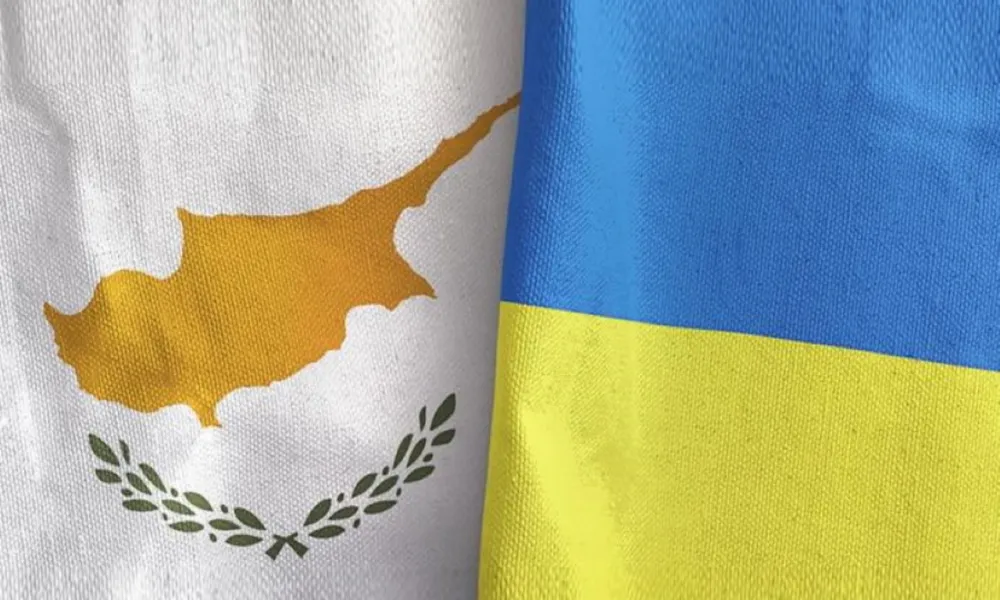For Nicosia, the way the world handles Ukraine could set a precedent with direct consequences for the island.
A Half-Century Apart, a Familiar Pattern
Fifty years after the Turkish invasion of Cyprus, Russia’s assault on Ukraine has revived old fears in Nicosia: what happens when military occupation becomes normalized? Both invasions involved blatant violations of the territorial integrity of independent states, both were justified by claims of “protecting minorities,” and in both cases the international community failed, or has so far failed, to reverse the occupation.
In 1974, Turkey invaded Cyprus under the pretext of protecting Turkish Cypriots after a coup by the Athens junta. Two military operations followed, leaving 37% of the island under Turkish control. Despite multiple UN condemnations, the occupation persists today, with division deepening over decades.
In 2022, Russia launched a full-scale invasion of Ukraine, aiming to topple Kyiv’s government and redraw borders. President Vladimir Putin spoke of “denazification” and the protection of Russian-speaking populations. Moscow also claimed annexation of Crimea (2014) and four other regions, Donetsk, Luhansk, Kherson, and Zaporizhzhia, despite not fully controlling them militarily.
Similarities and Differences
Both cases imposed a new territorial reality through force. Yet their trajectories differ.
-
Cyprus: The conflict is now seen as a “frozen” one, with the occupied areas administered by a Turkish-backed entity.
-
Ukraine: The war remains active, with shifting frontlines and intense Western involvement. Former U.S. President Donald Trump has even stepped in as a negotiator, though he recently expressed frustration at the lack of progress, suggesting Ukraine might need to wage its own offensive war.
Differences are equally stark:
-
Cyprus, a small island with limited military capacity, offered little resistance in 1974. Ukraine, with strong Western backing, managed to defend Kyiv and prevent full occupation.
-
The international environment also diverged: in 1974, Cold War priorities led the U.S. and U.K. to avoid confrontation with NATO ally Turkey. Washington imposed only temporary arms embargoes. By contrast, Russia in 2022 faced sweeping sanctions, economic isolation, and sustained Western military support for Ukraine.
-
Social composition differs too: Cyprus hosts two distinct communities with separate languages and religions, whose political disputes escalated into division. Ukraine, however, shared deep linguistic and cultural ties with Russia, leading some to portray the war as fratricidal, yet it remains a sovereign UN member state, whose borders should be respected.
The Geopolitical Lesson for Cyprus
For Nicosia, the stakes are high. If the international community ultimately accepts border changes in Ukraine, a dangerous precedent will be set for Cyprus, where occupation has endured for half a century. Cypriot officials consistently argue that the two issues are linked: territorial integrity cannot be negotiable, and military occupation must not be legitimized.
Yet history suggests international law often bends to geopolitical interests. Cyprus was sidelined in 1974 by Cold War rivalries. Ukraine today has become the center of a global confrontation. In both cases, principles risk being overshadowed by power politics.
The Trump Factor and Realpolitik
The Trump-led diplomatic push has highlighted a pragmatic, transactional approach to conflict resolution. Speculation centers on a possible “deal”: Russia might keep Crimea and some Russian-speaking regions, while Ukraine remains under Western influence, gains security guarantees, and edges closer to EU membership, but stays out of NATO. Such an arrangement would cement partial Russian gains while preventing full domination.
For critics, this is cynical; for others, it is simply realistic. Either way, it reduces lofty principles of international law to bargaining chips.
Cyprus: A Lost Window for Active Diplomacy
Unlike Ukraine, Cyprus no longer has the momentum of global urgency. Two generations have grown up since 1974 without direct experience of war. Earlier diplomatic efforts, in 1978, 2004, and 2017, offered real opportunities, but either collapsed or were rejected. Meanwhile, UN resolutions fade into irrelevance, and even European Court of Human Rights rulings struggle to balance refugee property rights with those of Turkish Cypriots and settlers who have lived in the north for decades.
Some in Cyprus now fear the same transactional “give-and-take” logic might eventually be applied to their own conflict. They point out that UN Resolution 3212 of 1974, long invoked by Nicosia, is effectively ignored. Today, the UN itself faces broader criticism as ineffective, underfunded, and sidelined in global crises.
Time as the Decisive Factor
The core lesson from both Cyprus and Ukraine is the passage of time.
-
If Ukraine reaches a settlement soon, it will likely involve loss of territory and sovereignty unless the West commits to a total military victory, an outcome that seems improbable. Ukraine could then become Europe’s “Vietnam,” a long-term frozen conflict on the EU’s borders.
-
For Cyprus, time has already redefined the conflict. A fair, UN-backed settlement seems increasingly remote. What remains, some argue, is either a major compromise, unlikely to fully satisfy Greek Cypriots, or the gradual acceptance of a two-state reality. One internationally recognized, the other awaiting recognition.
The Cyprus problem and the Ukraine war share unsettling parallels: invasions, occupations, and the weakness of international law when confronted with power politics. But they diverge in timing, geopolitics, and outcome.
For Cyprus, the overriding fear is that, just as Ukraine’s future may be shaped by realpolitik rather than principle, so too could its own unresolved conflict, fifty years after the summer of 1974.
